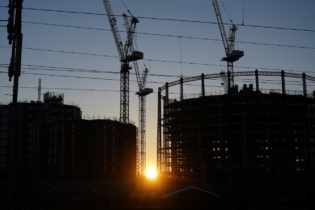The Master Builders Association (MBA) North warns that the lockdown and its aftermath are set to raise all sorts of issues for an industry that is already in trouble.
“The fact that all construction work has been put on hold for the lockdown period has caused an immediate cash flow crunch, but there are longer term impacts that must also be considered,” says Mohau Mphomela, Executive Director of the organisation. “The sector is already weakened by a sustained lack of spending on infrastructure, and many of its largest players have gone into business rescue or liquidation. Those that remain do not have the cash reserves to survive for long, especially given the way that payments are structured on construction projects,” he says. “The MBA North has been speaking to members to understand the full implications of the lockdown, particularly on smaller firms and their workers.” Payments are linked to project progress Although contractors and subcontractors can declare force majeur and so will not be penalised for not meeting deadlines, payments are only made when project progress is met. “All our clients have approved the project extensions, this is not the issue. The issue is that we will only get paid when the work is complete,” says Nwabejana Mohlaba of Belo Projects in summary. This temporary cessation in payments is passed down the line, from principal contractor down to subcontractors and ultimately the workforce. Wayne Albertyn, Director of Gothic Construction and President of MBA North, also points out that while some contractors will have invoiced for work completed during March, they will not be in a position to invoice at the end of April. This might mean that for some the cash crunch will come after the current lockdown period has ended. An added complication is that the industry is already plagued with a culture of late payment. Many contractors and subcontractors are likely to have entered the lockdown with existing cash flow issues, which will be exacerbated by the layoff. A large proportion of the workforce is temporaryTemporary workers have little protection under the labour laws and are thus particularly vulnerable to non-payment when work is halted. Most live from hand to mouth, and so have few financial reserves to tide them over a lean period.
Even those workers working for larger companies are likely to be paid at a reduced rate. Albertyn says that his company is paying workers during the lockdown, with individuals being able to claim from the Unemployment Insurance Fund (UIF) where applicable which has made R30 billion available via a National Disaster Benefit Fund. Albertyn stresses that this arrangement is not sustainable over the long term, and would have to be reviewed if the lockdown is extended. Other options include forcing employees to take their annual leave now and using the traditional December-January builders’ holidays to catch up, and moving payday to the end of the month to preserve cash flow. Schemes for assisting SMEs are not well understood and may not be fit for purpose Mohlaba says that payment holidays might actually pose a long-term risk to the business as they will have to be repaid eventually. Mphomela adds that the MBA is providing guidance for its members and practical assistance in accessing any help that is available. “The lockdown period should be seen as a time in which smaller firms that qualify for SME relief engage with the MBA and get their applications in. There are many SMEs out there, so it’s likely that there will be delays in processing applications, so don’t waste this time,” he says. “Our staff are standing by to assist electronically, and their contact details are posted on our site.” Lack of time to plan Because the lockdown was implemented with little warning, some building material suppliers say that they were not able to conclude delivery terms on existing contracts and agree on the way forward. Musa Shangase, Director at Corobrik, says that his company will have to attend to renegotiating supply term contracts with clients post lockdown. On a more positive note, Mphomela argues that the industry-wide hardships caused by the lockdown should be seen as an opportunity for all players, including clients, to come together to thrash out a common response designed to maximise the industry’s ability to recover.






